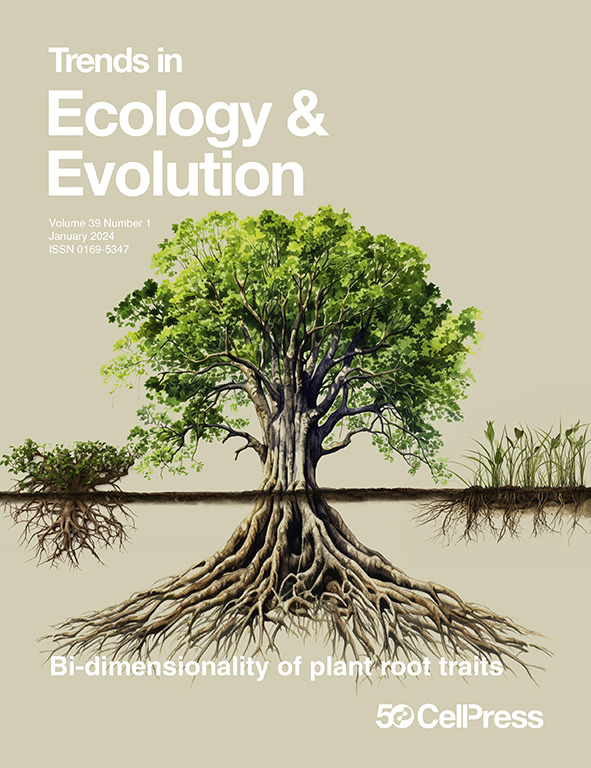土著人民提供了管理生物入侵的替代方法。
IF 16.7
1区 生物学
Q1 ECOLOGY
Trends in ecology & evolution
Pub Date : 2024-09-01
Epub Date: 2024-07-23
DOI:10.1016/j.tree.2024.07.008
引用次数: 0
摘要
生物入侵是生物多样性的主要威胁。Seebens 等人发现,土著居民土地上的外来物种比其他土地少 30%。这一发现要求对造成这种差异的驱动因素进行更多研究,从土著居民的土地管理实践到指导人与自然关系的价值观。本文章由计算机程序翻译,如有差异,请以英文原文为准。
Indigenous Peoples provide alternative approaches to managing biological invasions.
Biological invasions are a main threat to biodiversity. Seebens et al. find that Indigenous Peoples' lands host 30% fewer alien species than other lands. This finding calls for additional examination of the drivers of such difference, from Indigenous Peoples' land management practices to the values that guide relations with nature.
求助全文
通过发布文献求助,成功后即可免费获取论文全文。
去求助
来源期刊

Trends in ecology & evolution
生物-进化生物学
CiteScore
26.50
自引率
3.00%
发文量
178
审稿时长
6-12 weeks
期刊介绍:
Trends in Ecology & Evolution (TREE) is a comprehensive journal featuring polished, concise, and readable reviews, opinions, and letters in all areas of ecology and evolutionary science. Catering to researchers, lecturers, teachers, field workers, and students, it serves as a valuable source of information. The journal keeps scientists informed about new developments and ideas across the spectrum of ecology and evolutionary biology, spanning from pure to applied and molecular to global perspectives. In the face of global environmental change, Trends in Ecology & Evolution plays a crucial role in covering all significant issues concerning organisms and their environments, making it a major forum for life scientists.
 求助内容:
求助内容: 应助结果提醒方式:
应助结果提醒方式:


